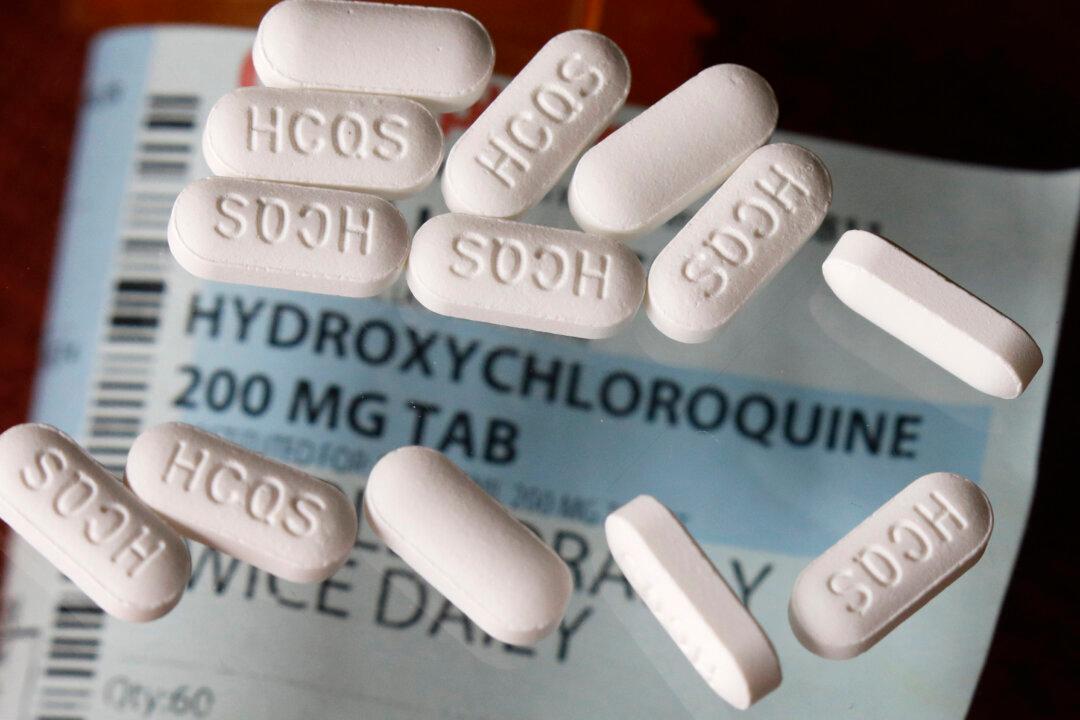Tens of thousands of hydroxychloroquine doses are being used by the Department of Veterans Affairs on any given day.
“Those of us who’ve had a military life—some of us around this table—we’ve been taking this drug for years,” Secretary of Veterans Affairs Robert Wilkie told reporters at the White House Tuesday.





